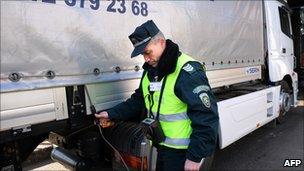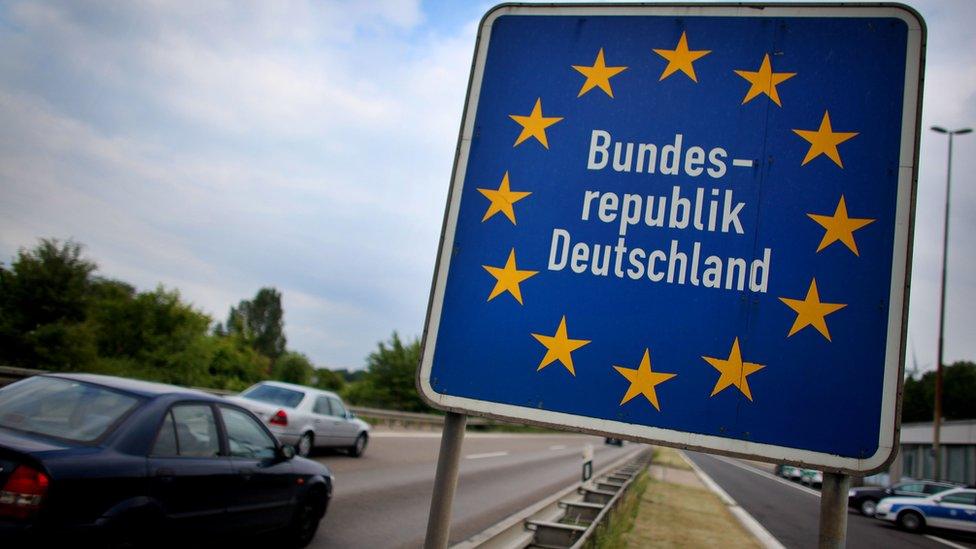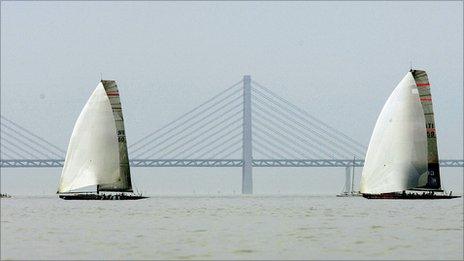Schengen zone: Delay for Bulgaria and Romania to join
- Published

Bulgaria is under pressure to stop illegal migrants entering the EU from Turkey
The Netherlands plans to delay until next year any decision on whether to let Bulgaria and Romania join Europe's passport-free Schengen zone.
Dutch Immigration Minister Gerd Leers spoke of the delay just a day after the European Parliament had voted to let the two Balkan countries into Schengen.
Bulgaria and Romania - EU members since 2007 - need the approval of all 25 Schengen nations to join.
Arab world turmoil has fuelled concern about illegal migration to the EU.
EU interior ministers are meeting in Luxembourg to review the Schengen zone rules. Only minimal border checks are carried out within Schengen, though the treaty requires the member states to apply uniform controls on the EU's external borders.
France and Italy demanded a clarification of the rules after an influx of illegal migrants from North Africa led to a dispute over which country should handle them.
MEPs give thumbs-up
Meanwhile, German politicians have criticised Denmark's decision to reinstate control booths on its borders. The Danish government says it is necessary to counter organised crime and people-trafficking.
Last year the Greece-Turkey land border became a migration hotspot, fuelling EU concern about border security in neighbouring Bulgaria and Romania.
Mr Leers said "it is imperative that all adopted judicial reform measures in Romania and Bulgaria are effective and irreversible".
He said the Dutch government would decide on the two countries' bids to join Schengen next year, after studying the next EU Commission report on their compliance with the rules.
On Wednesday MEPs in Strasbourg gave an overwhelming thumbs-up to the two countries' Schengen bids. There were 487 votes in favour of letting them in, 77 against and 29 abstentions.
"The Schengen system is providing the highest standards of border management. Romania and Bulgaria are meeting these standards today - hence, we must not delay their integration," said parliament president Jerzy Buzek.
The MEP steering the parliament's negotiations on Schengen, Carlos Coelho from Portugal, acknowledged that Bulgaria would have to take some extra measures and improve border co-operation with Greece and Turkey.
Most EU states are in Schengen, as are three non-EU countries: Iceland, Norway and Switzerland.
Besides Bulgaria and Romania, three EU countries remain outside: Cyprus, the Irish Republic and the UK.
EU Home Affairs Commissioner Cecilia Malmstrom has called for a robust EU "community mechanism" to decide on exceptional cases where states may reimpose border controls temporarily.
Schengen allows for the temporary reimposition of border controls in special cases to ensure public order.
The European Commission says such measures should be "an absolute last resort".
- Published24 April 2016

- Published12 May 2011
- Published11 May 2011
